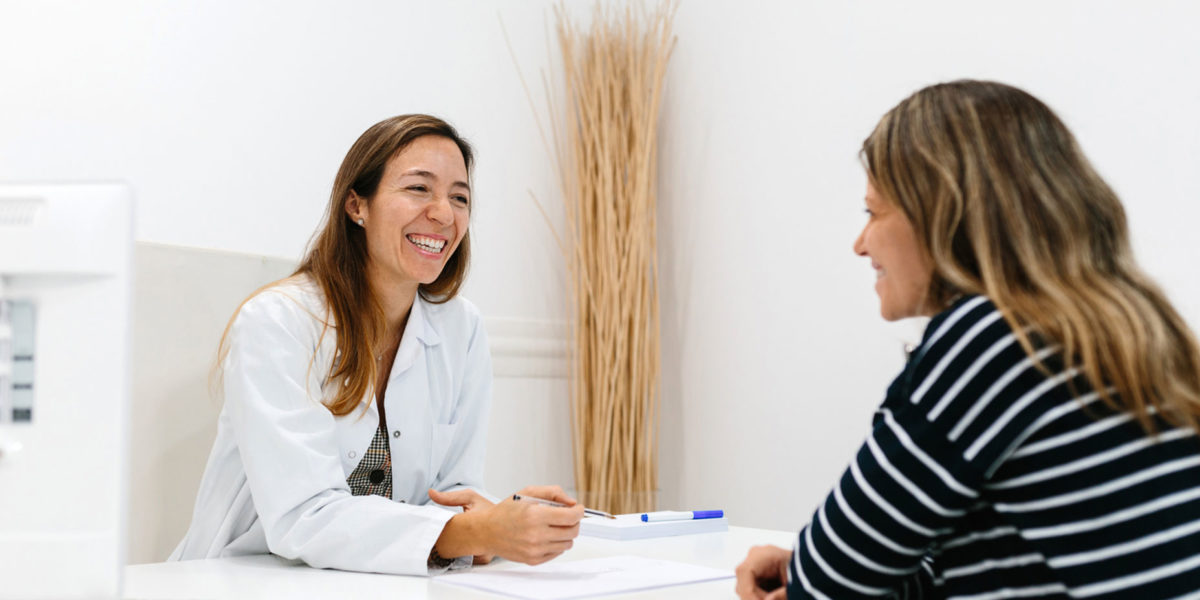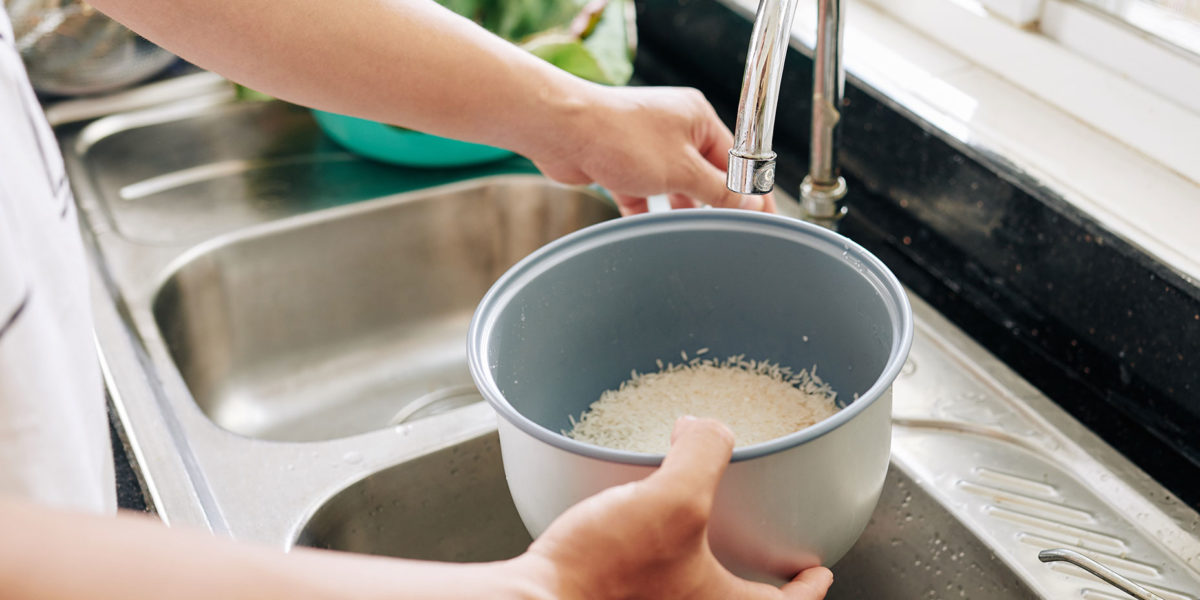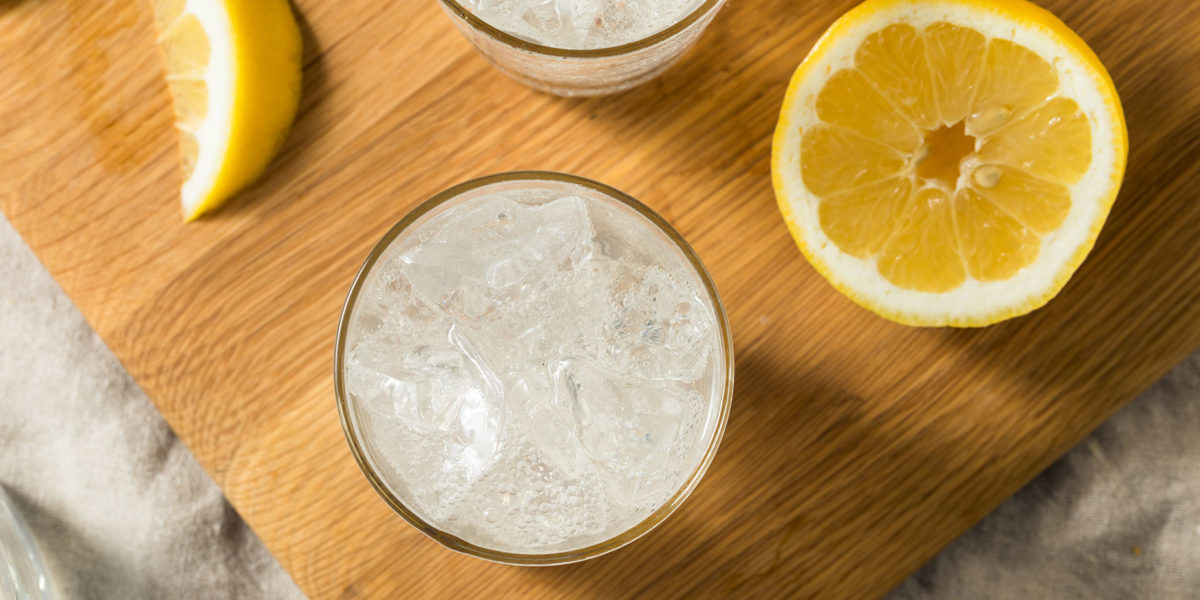As we grow in years, it’s time to start paying more attention to the health of our kidneys. A decline in kidney function is a common accompaniment to aging, and that’s a problem because our kidneys play crucial roles in our overall health and vitality, including the health of our bones. Fortunately, there’s much we can do to keep our kidneys working well for us as we age.
What Your Kidneys Do for You
Your kidneys are little powerhouses whose relentless work keeps you healthy by:
Cleansing your blood of toxins, eliminating them in your urine along with waste products produced by normal metabolic processes. Helping you clear these toxins is a lot of work: your kidneys filter about 200 liters of fluid every single day!
Helping to regulate your blood pressure and prevent edema, by maintaining adequate fluid levels while clearing excess water from your body.
Controlling the balance of electrolytes in your blood by regulating levels of sodium, potassium, and calcium. The right balance of these electrolytes is needed for the transmission of nerve signals that enable your muscles, including your heart muscle, to contract. Electrolytes are also involved in the activation of enzymes, the formation of bones and teeth, the regulation of the body’s water content, the secretion of stomach acid – and lots more.
Helping you absorb the calcium you consume by converting 25(OH)D, an inactive form in which vitamin D circulates in your bloodstream, into 1,25-D, the active hormonal form of vitamin D needed for our active absorption of calcium. And then helping you retain that calcium by reabsorbing it from the fluids passing through their filtering apparatus.
When your kidney function declines, so does your ability to:
- Clear many toxins (environmental poisons, drugs, hormones you’ve used and need to excrete, and lots more) from your body
- Maintain healthy blood pressure
- Prevent edema
- Prevent the calcium you need from being lost in your urine
- And activate the vitamin D you need to absorb calcium from your digestive tract

How Kidney Health Impacts Bone Health
Your kidneys directly affect the health of your bones due to their influence on mineral balance, their detoxification responsibilities, and their role in converting vitamin D to its active form.
For example:
Toxin Elimination – Your kidneys play a crucial role in eliminating toxins from your body that would otherwise cause inflammation. Chronic inflammation causes excessive activation of osteoclasts, directly increasing the rate at which bone is broken down[1].
Vitamin D Activation– Your kidneys are the primary site where vitamin D is converted into its active hormonal form, the form required for your ability to actively absorb calcium from your intestines. Since “active absorption” accounts for ~85% of all the calcium you absorb, this is a big deal!
Phosphorus Elimination – The phosphate additives found in virtually all processed foods overload the body with phosphorus. Normal healthy kidneys can eliminate this extra phosphorus, but the constant extra work means increased wear-and-tear on our kidneys. Eventually the kidneys cannot keep up the pace, and phosphorus levels increase in the blood[19].
High blood levels of phosphorus are associated with low blood levels of calcium. When blood calcium drops, we secrete parathyroid hormone, which increases our elimination of phosphorus in urine, but also activates osteoclasts to pull calcium out of our bones to restore calcium blood levels. When your kidneys aren’t functioning properly, phosphorus isn’t cleared at the rate it should be, and your bones’ stores of calcium suffer the consequence[19].

How to Evaluate Kidney Health
Several tests can be ordered to evaluate the health of your kidneys, including[3]:
Glomerular Filtration Rate (eGFR)
Your eGFR reveals how much blood passes through the tiny filters in your kidneys (called glomeruli) that filter waste from the blood. This lets you know how well your kidneys are removing wastes, toxins, and extra fluids from your body. The lower your eGFR, the less able your kidneys are to remove waste.
In our 30s, the average eGFR is 107. In the 40s, it’s 99. In our 50s, it’s around 93. By the time we’re in our 60s, a healthy eGFR is around 85. At age 70 or over, our eGFR should be at least 75[20].
If your eGFR is below these age-adjusted numbers, that’s a sign that damage has occurred in your kidneys that’s compromising their ability to function.
Can you do something to reverse this trend? Absolutely, we’ll talk about simple safe things you can do to support your kidney health shortly.
Serum Creatinine
A serum creatinine test measures the amount of creatinine in your blood. Creatinine is produced from the breakdown of creatine phosphate during muscle and protein metabolism. Creatinine is released at a constant rate in the body and eliminated by the kidneys when they’re working efficiently. If your kidneys aren’t, less creatinine will be eliminated in your urine, and your blood levels (serum creatinine levels) will rise as this waste product builds up.
Age, sex, and muscle mass all impact our serum creatinine levels, but typically, a serum creatinine level of more than 1.2 for women and more than 1.4 for men may indicate that the kidneys are not working as well as they should.
Blood Urea Nitrogen (BUN)
Urea nitrogen is a waste product your body makes from the breakdown of dietary protein. A BUN test measures the amount of urea in your blood, assessing how well your kidneys are removing this waste from your blood and eliminating it in your urine. Healthy kidneys will swiftly move urea out of the blood, but when kidney health is struggling, blood urea nitrogen can build up.
A normal BUN range is typically from 7 to 20, with higher levels indicating abnormal kidney function[21].
Kidney Disease
There are several different types of kidney disease, but chronic kidney disease (CKD) is by far the most common.
Chronic Kidney Disease
Chronic kidney disease occurs when damage to your kidneys causes a lessening in their ability to filter wastes and fluids effectively. The most common causes of CKD are diabetes and high blood pressure, but cardiovascular disease, family history, and obesity may also play a role[4].
And so can frequent use of medications that can damage the kidneys, including antibiotics, diuretics, non-steroidal anti-inflammatory drugs like acetaminophen or ibuprofen, proton pump inhibitors, supplements containing wormwood oil or phosphorus, or laxatives[22][23].
If you must frequently take one of these medications or supplements, discuss alternatives or possibly taking a lower dose with your doctor.
The five stages of CKD are listed below in relation to eGFR[24]:
Stage 1 with normal or high eGFR (eGFR > 90 mL/min)
Stage 2 Mild CKD (eGFR = 60-89 mL/min)
Stage 3A Moderate CKD (eGFR = 45-59 mL/min)
Stage 3B Moderate CKD (eGFR = 30-44 mL/min)
Stage 4 Severe CKD (eGFR = 15-29 mL/min)
Stage 5 End Stage CKD (eGFR <15 mL/min)
Other Kidney Diseases
Cystinosis – Cystinosis is a rare condition that allows cysteine to build up in your body. This causes various health problems, including kidney damage that can lead to kidney failure. This condition is genetic and is most often diagnosed in young babies[5].
Glomerulonephritis – Glomerulonephritis occurs when your glomeruli (the tiny filters in your kidneys that clean your blood) become damaged and lose their ability to remove waste. Treatment for glomerulonephritis requires identification of the root cause, which can be toxins, medications, viral or bacterial infections[6][25].
IgA Nephropathy – IgA Nephropathy causes proteins made by your immune system to build up in your kidneys, damaging your glomeruli and therefore inhibiting their proper function. The damage from IgA Nephropathy can take years to develop and may eventually turn into CKD[7].
Polycystic kidney disease (PKD) – PKD is a genetic disorder that causes fluid-filled cysts to form on your kidneys and other organs. These cysts lower your kidney’s ability to filter fluid and waste from your blood and eventually may lead to CKD[8].
Causes of Chronic Kidney Disease
In chronic kidney disease, your eGFR will significantly decline, inhibiting your kidneys from filtering out wastes and fluids as normal. It’s currently believed that this decline in eGFR is caused by progressive damage to your blood vessels. Specifically, the tiny, delicate blood vessels in the kidneys.
The initiating cause of this damage can come from several sources, including hypertension, diabetes, heart disease, and a host of other potential imbalances.
What all of these imbalances have in common, however, is chronic oxidative stress and inflammation.
The renin-angiotensin system also comes into play, as these two hormones work together to help maintain blood pressure, fluid and electrolyte balance, and overall vascular resistance.
For example, when you’re not getting enough water and the amount of fluid in your body drops too low, your liver produces the hormone, angiotensinogen. Angiotensin is then sent to your kidneys where it’s converted into angiotensin I and then angiotensin II by the hormone renin.
Angiotensin II will cause your blood vessels to constrict, raising your blood pressure. However, this hormone also causes inflammatory chemicals to accumulate in the lining of your blood vessels, while also narrowing your blood vessels due to increased smooth muscle cell proliferation [9].
Even mild dehydration can increase the production of angiotensin II, which means that as you get older, it’s especially important to stay well hydrated because your risk for inflammation and narrowing of the blood vessels increases as your sense of thirst diminishes.
How to Support Kidney Health

Stay Hydrated
One of the simplest yet most effective ways to support kidney health is to stay on top of your hydration. As previously mentioned, dehydration activates the renin-angiotensin system, which may ultimately lead to inflammation and narrowing of your blood vessels. This sets the stage for kidney health issues as your glomeruli are unable to filter wastes properly.
Eat Organic
It’s sad to say, but our food supply has become so inundated with chemicals and pollutants that consuming conventional produce is like playing Russian roulette with your health. We simply don’t know what kinds of chemicals are being sprayed on conventionally grown foods and how toxic the soil is that our produce is grown in.
Many of the chemicals hiding in our food supply specifically target your kidneys, including persistent organic pollutants (POPs), chemicals used in the production of plastics, and pesticide residues.
Don’t Overdo Protein
While it is essential to ensure adequate protein intake, which for elders or anyone who is physically very active means consuming 1.2 grams of protein per kilogram of body weight per day, you don’t want to overdo it for several reasons.
First, the breakdown products of protein stress the kidneys, so whenever you overindulge in protein, your kidneys get the brunt of the cleanup work. And second, chemical and metal toxins that damage the kidneys concentrate in the flesh of conventionally raised animals.
Therefore, if you eat meat, be sure to choose organic as often as possible, ideally from pasture-raised animals.
As mentioned, older adults (65 and over) typically need about 1.2 grams of protein per kilogram of body weight per day. If you think you’re consuming more than this, try to eat smaller portions of protein and round out your meals with more vegetables, whole grains, nuts and seeds, and fresh fruits. For some easy, delicious, bone-and-kidney healthy ideas, visit AlgaeCal’s recipe blog.
Avoid Processed Foods
If you need yet another reason to avoid processed foods – in addition to their lack of bone-supportive nutrients and abundance of refined carbohydrates that make you fat and your bones thin — here you go: processed foods are disastrous for kidney health.
Processed foods are loaded with two nutrients that can directly harm kidney function: sodium and phosphorus.
Let’s start with sodium. When you consume excess salt, your kidneys have to work overtime to get rid of the excess in an effort to maintain electrolyte balance in your body. In fact, research suggests that the level of salt that’s typically consumed today (around 3.4 grams) may be the primary reason people’s kidneys deteriorate as they age.
Ideally, you should aim for about 2.3 grams of salt per day (~1 teaspoon of salt)[26].
This number would be impossible to hit if your diet contains primarily processed foods, which means that to retain the health of your kidneys, you’ll need to trade in those packaged goods for whole foods.
And if the salt debacle isn’t enough to turn your head, phosphorus certainly will.
Excessive phosphate consumption damages your kidneys, blocking your blood vessels, and decreasing your filtration rate. In fact, one of the early signs of kidney failure is increasing phosphate levels in the blood[10].
Unfortunately, phosphorus, in the form of phosphate additives, is added to almost all processed foods to enhance their flavor and texture, including (but not limited to):
- Prepared frozen foods
- Dry food mixes
- Packaged meats
- Bread and baked goods
- Soups
- Yogurts
- Frozen vegetables
- Snacks
- Condiments, and sauces
- And much more
Perhaps the worst offender is cola drinks. Unlike the phosphorus in whole foods, much of which is not absorbed and what is, is absorbed slowly, even “sugar-free” colas contain a 100% bioavailable form of phosphorus, phosphoric acid (H3PO4), which is rapidly absorbed into your body.
To keep your kidneys working for you, aim to decrease your intake of phosphate additives to less than 400 mg per day. If you’re eating minimally processed whole foods, this will be suprisingly easy to do. For help identifying “where the phosphate additives lurk,” see the chart in my article on PubMed, “Canaries in the Phosphate Toxicity Coal-Mines[27]:
Watch Out for Heavy Metals

Minimize your exposure to arsenic, cadmium, lead, and mercury – all of which damage your kidneys [11].
Arsenic is found in chicken and in rice, even if organic. You can remove almost all the arsenic in rice by simply using the following pre-cooking method. Rinse your rice well, then cover with water in your pot and bring to a boil. Cook for 5 minutes, then drain, rinse well and cook as you normally would. Unfortunately, the arsenic in chicken cannot be removed, and it takes around three days for arsenic to be eliminated from the body, so it’s best to eat chicken no more than twice a week[28][29][30].
We’re exposed to cadmium in cigarette smoke and in foods grown conventionally (i.e., with the use of high phosphate fertilizers, as these add cadmium to the soils). More reason to not smoke, avoid second-hand smoke exposure and eat organically grown foods[31].
Lead uses the same channels used by calcium for its absorption, and calcium is preferentially absorbed over lead, so consuming calcium protects us against absorbing lead. Studies have shown that low dietary calcium intake leads to higher levels of lead in the blood. Conversely, consuming at least 1,200 of calcium daily is associated with lower blood levels of lead. This is one of the reasons that AlgaeCal Plus, by displacing lead with calcium, helps protect your kidneys[32][33].
The majority of human exposure to mercury is due to the consumption of food contaminated methyl mercury. When consumed, methylmercury is readily absorbed from the gastrointestinal tract into the bloodstream and rapidly delivered to target organs, primarily the kidneys. A few hours after exposure, approximately 50% of a dose of mercury has made its way to the kidneys where it’s highly toxic[34].
What can you do?
Eat smaller species of wild-caught fish, such as salmon, sardines. Visit this Smart Seafood Buying Guide for a list of fish lowest in mercury.
And if you have “silver” dental fillings (dental amalgams), have them removed by an ecologically trained dentist, who will know how to minimize the release of mercury (that could otherwise end up in your brain as well as your kidneys) during extraction.

Kidney-Supportive Nutrients
In addition to calcium, the healthful function of your kidneys requires magnesium, and vitamin K2 – two nutrients provided by AlgaeCal Plus.
Magnesium is another mineral that promotes our healthful use of calcium. We need about half as much magnesium as calcium for their optimal balance, and this is the amount of magnesium provided in AlgaeCal Plus to balance the calcium it delivers. Magnesium can help ward off the formation of kidney stones, which can contribute to kidney disease[12][13].
Getting enough magnesium in your diet to maintain this 2:1 calcium: magnesium balance is important. If you have a copy of Healthy Bones, Healthy You!, keep a diet diary for a couple of typical days and check the Best Food Sources of Calcium and Best Food Sources of Magnesium tables in the book to make sure your diet is providing enough magnesium for you: about half as much magnesium as the calcium your diet contains.
Vitamin K2 is essential for your ability to get the calcium you consume into your bones. K2 activates osteocalcin, a protein that pulls calcium into our bones, and also matrix Gla protein, which prevents calcium from depositing in soft tissues, like our blood vessels. The tiny delicate blood vessels in your kidneys are especially susceptible to damage when K2 is lacking. Ensuring you’re getting K2 along with calcium not only supports the health of your bones but protects that of your kidneys as well.
Two more key nutrients for healthy kidneys are citrate and the omega-3 fatty acids.
Increased intake of citrate is strongly recommended for patients with chronic kidney disease. Citrate protects against the formation of the most common type of kidney stone: calcium oxalate stones[36].
“Citrus (lemons, oranges, grapefruit, and lime) and non-citrus fruits (melon) are natural sources of dietary citrate, and several studies have shown the potential of these fruits and/or their juices in raising urine citrate levels. Increased intake of these fruits increases citrate excretion and involves a significant protection against the risk of stone formation[37].”
Citrate lowers pH, restoring the slightly alkaline pH that our cells require to function healthfully, and lowers oxidative stress thus lowering inflammation that can damage the delicate machinery of your kidneys and can also overly activate your osteoclasts, the cells that breakdown bone[38][39][40].
In addition to the citrus fruits mentioned above, where can you get citrate? In Strontium Boost, which is strontium citrate. Strontium Boost is an excellent source of kidney-protective citrate: 2 capsules provide 440 mg of citrate! Even one capsule daily provides 220 mg of citrate.
However, if your eGFR is less than 60, simply because strontium is a larger molecule and thus requires more effort on the part of our kidneys to eliminate, you should get your citrate from eating more whole citrus fruits.
Drinking lots of juice may be hard on your teeth and also delivers too much concentrated sugars, natural sugars but still sugars. Instead, take a large bottle of sparkling mineral water (my favorite is Pellegrino), drink about 1/3rd of it and pour freshly squeezed lemon, lime or orange juice back in to fill the bottle again, then drink this throughout your day.

A final key nutrient for healthy kidneys is the omega-3 fatty acids, which have been shown to reduce inflammation, atherosclerosis, and fibrosis in the kidneys’ filtering tubules.
Human studies show that higher blood levels of omega-3s are associated with slower loss of creatinine clearance (a marker of your eGFR). This means that omega-3s improve your kidneys’ ability to clear waste from your body.
Furthermore, a meta-analysis of 17 trials involving individuals with kidney disease reported that omega-3 fatty acids reduced the presence of albumin in their urine by 19%. Albumin is a protein found in the blood that healthy kidneys send back into the bloodstream instead of letting it pass into the urine. A damaged kidney, however, allows some albumin to pass into the urine, a situation called albuminuria. Two other trials have provided evidence that omega-3 fatty acids help prevent a loss of eGFR [14][15][16].
If you’re looking for an omega-3 supplement, Triple Power Omega-3 Fish Oil provides high-quality EPA and DHA with an extra boost for kidney health: curcumin. Curcumin has been shown to protect the kidneys from cadmium (one of the heavy metals noted above that damage our kidneys) and improves eGFR – even in people with diabetes and albuminuria![17][18].
Takeaway
When troubles begin with the kidneys, don’t believe you’re doomed to a continuing decline in your kidney function! There are simple, safe effective ways you can support the health of your kidneys, prevent further damage and restore function.
Best of all, the steps you take to care for your kidneys will benefit your entire body – ensuring good hydration, a whole foods diet with extra nutritional support where indicated, and avoiding processed foods and toxic compounds will help you age vibrantly, looking and feeling young as you age.
Begin by looking at what you eat every day. Are you shopping for high-quality fruits, vegetables and protein-rich foods that will serve you best? Are you avoiding processed foods? Are you consuming enough protein without going overboard?
Taking care of these basics will do wonders for minimizing the workload sent to your kidneys. And making sure that you’re well hydrated is essential not only for kidney health, but also for the healthful function of every cell in your body.
Finally, look at your supplements. Are you getting the nutrients needed to support the health and function of your kidneys? High-quality options like Triple Power Omega-3 Fish Oil and AlgaeCal Plus are packed with the minerals, herbs, and essential fatty acids that directly promote healthy kidneys as well as healthy bones.
References
- Hardy, Rowan, and M. S. Cooper. “Bone loss in inflammatory disorders.” Journal of Endocrinology 201.3 (2009): 309-320.
- https://www.niddk.nih.gov/health-information/kidney-disease/mineral-bone-disorder
- https://www.cdc.gov/kidneydisease/publications-resources/kidney-tests.html
- https://www.niddk.nih.gov/health-information/kidney-disease/chronic-kidney-disease-ckd
- https://www.kidney.org/atoz/content/nephropathic-cystinosis
- Kazi, Ahmad M., and Muhammad F. Hashmi. “Glomerulonephritis.” (2020).
- https://www.niddk.nih.gov/health-information/kidney-disease/iga-nephropathy
- https://www.mayoclinic.org/diseases-conditions/polycystic-kidney-disease/symptoms-causes/syc-20352820
- Hussain, Misbah, and Fazli Rabbi Awan. “Hypertension regulating angiotensin peptides in the pathobiology of cardiovascular disease.” Clinical and experimental hypertension 40.4 (2018): 344-352.
- Pizzorno, Lara. “Canaries in the phosphate-toxicity coal mines.” Integrative Medicine: A Clinician’s Journal 13.6 (2014): 24.
- Orr, Sarah E., and Christy C. Bridges. “Chronic kidney disease and exposure to nephrotoxic metals.” International journal of molecular sciences 18.5 (2017): 1039.
- Vormann, Jürgen. “Magnesium and kidney health-more on the forgotten electrolyte’.” American journal of nephrology 44.5 (2016): 379-381.
- DeLuccia, Rosemary, et al. “Calcium to Magnesium Ratio Higher Than Optimal Across Age Groups (P10-100-19).” Current Developments in Nutrition 3.Supplement_1 (2019): nzz034-P10.
- Hu, Jing, Zuoliang Liu, and Hao Zhang. “Omega-3 fatty acid supplementation as an adjunctive therapy in the treatment of chronic kidney disease: a meta-analysis.” Clinics 72 (2017): 58-64.
- Lee, C. Christine, and Amanda I. Adler. “Recent findings on the effects of marine-derived n-3 polyunsaturated fatty acids on urinary albumin excretion and renal function.” Current atherosclerosis reports 14.6 (2012): 535-541.
- de Boer, Ian H., et al. “Vitamin D and omega-3 trial to prevent and treat diabetic kidney disease: Rationale, design, and baseline characteristics.” Contemporary clinical trials 74 (2018): 11-17.
- Vanaie, Azam, et al. “Curcumin as a major active component of turmeric attenuates proteinuria in patients with overt diabetic nephropathy.” Journal of Research in Medical Sciences: The Official Journal of Isfahan University of Medical Sciences 24 (2019).
- Mohajeri, Mohammad, Mehdi Rezaee, and Amirhossein Sahebkar. “Cadmium‐induced toxicity is rescued by curcumin: a review.” Biofactors 43.5 (2017): 645-661.
- Vorland, Colby J., et al. “Effects of excessive dietary phosphorus intake on bone health.” Current osteoporosis reports 15.5 (2017): 473-482.
- https://www.kidney.org/atoz/content/gfr
- https://www.cdc.gov/kidneydisease/publications-resources/kidney-tests.html
- https://www.mayoclinic.org/diseases-conditions/chronic-kidney-disease/symptoms-causes/syc-20354521
- https://www.webmd.com/a-to-z-guides/medicine-hurt-kidneys#091e9c5e818cc31a-1-6
- https://www.davita.com/education/kidney-disease/stages
- https://www.hopkinsmedicine.org/health/conditions-and-diseases/glomerulonephritis
- Mente, Andrew, Martin O’Donnell, and Salim Yusuf. “Sodium intake and health: what should we recommend based on the current evidence?.” Nutrients 13.9 (2021): 3232.
- Pizzorno, Lara. “Canaries in the phosphate-toxicity coal mines.” Integrative Medicine: A Clinician’s Journal 13.6 (2014): 24.
- Liu, Qingqing, et al. “Arsenic species in chicken breast: temporal variations of metabolites, elimination kinetics, and residual concentrations.” Environmental health perspectives 124.8 (2016): 1174-1181.
- Wilson, Denise. “Arsenic consumption in the United States.” Journal of Environmental Health 78.3 (2015): 8-15.
- Nachman, Keeve E., et al. “Roxarsone, inorganic arsenic, and other arsenic species in chicken: a US-based market basket sample.” Environmental health perspectives 121.7 (2013): 818-824.
- Rodríguez, Juliana, and Patricia Mónica Mandalunis. “Effect of cadmium on bone tissue in growing animals.” Experimental and Toxicologic Pathology 68.7 (2016): 391-397.
- Maret, Wolfgang. “The bioinorganic chemistry of lead in the context of its toxicity.” Lead: its effects on environment and health 17 (2017): 1-20.
- Ettinger, Adrienne S., Howard Hu, and Mauricio Hernandez-Avila. “Dietary calcium supplementation to lower blood lead levels in pregnancy and lactation.” The Journal of nutritional biochemistry 18.3 (2007): 172-178.
- Bridges, Christy C., and Rudolfs K. Zalups. “The aging kidney and the nephrotoxic effects of mercury.” Journal of Toxicology and Environmental Health, Part B 20.2 (2017): 55-80.
- https://www.nrdc.org/stories/smart-seafood-buying-guide
- Phillips, Rebecca, et al. “Citrate salts for preventing and treating calcium containing kidney stones in adults.” Cochrane Database of Systematic Reviews 10 (2015).
- Prezioso, Domenico, et al. “Dietary treatment of urinary risk factors for renal stone formation. A review of CLU Working Group.” (2015): 105-120.
- Infantino, Vittoria, Ciro L. Pierri, and Vito Iacobazzi. “Metabolic routes in inflammation: the citrate pathway and its potential as therapeutic target.” Current Medicinal Chemistry 26.40 (2019): 7104-7116.
- Williams, Niamh C., and Luke AJ O’Neill. “A role for the Krebs cycle intermediate citrate in metabolic reprogramming in innate immunity and inflammation.” Frontiers in immunology 9 (2018): 141.
- Søltoft-Jensen, Jakob, and Flemming Hansen. “New chemical and biochemical hurdles.” Emerging technologies for food processing. Academic Press, 2005. 387-416.






Mariela Sano
January 19, 2023 , 9:04 amHi Lara,
Excellent article! Very complete and detailed!
I tend to form kidney stones and that is why for 20 years I avoided eating foods that contain calcium such as dairy products. I am now 50 years old and have been diagnosed with osteoporosis at high risk of fracture in femoral neck and lumbar spine!
I have purchased the AlgeaCal Bone Builder Pack and am making adjustments to my diet.
From what I read, there is no problem with me taking AlgeaCal Plus regarding my tendency to form kidney stones, but regarding the Strontium I have some concerns.
1) Is it safe for my kidneys to take Strontium Boost plus all the calcium, vitamins and minerals in the Bone Builder Pack all at once if my eGFR is 79? Or should I start taking half the dose and then increase to the full dose if i don’t have any issues?
2) Also, I read from a RD that Strontium can falsely elevate DXA scan results and when you stop the use of strontium, those total bone strontium levels can decrease pretty rapidly.
I would greatly appreciate your thoughts as well as your recommendations on these questions I have.
Kind regards,
Mariela